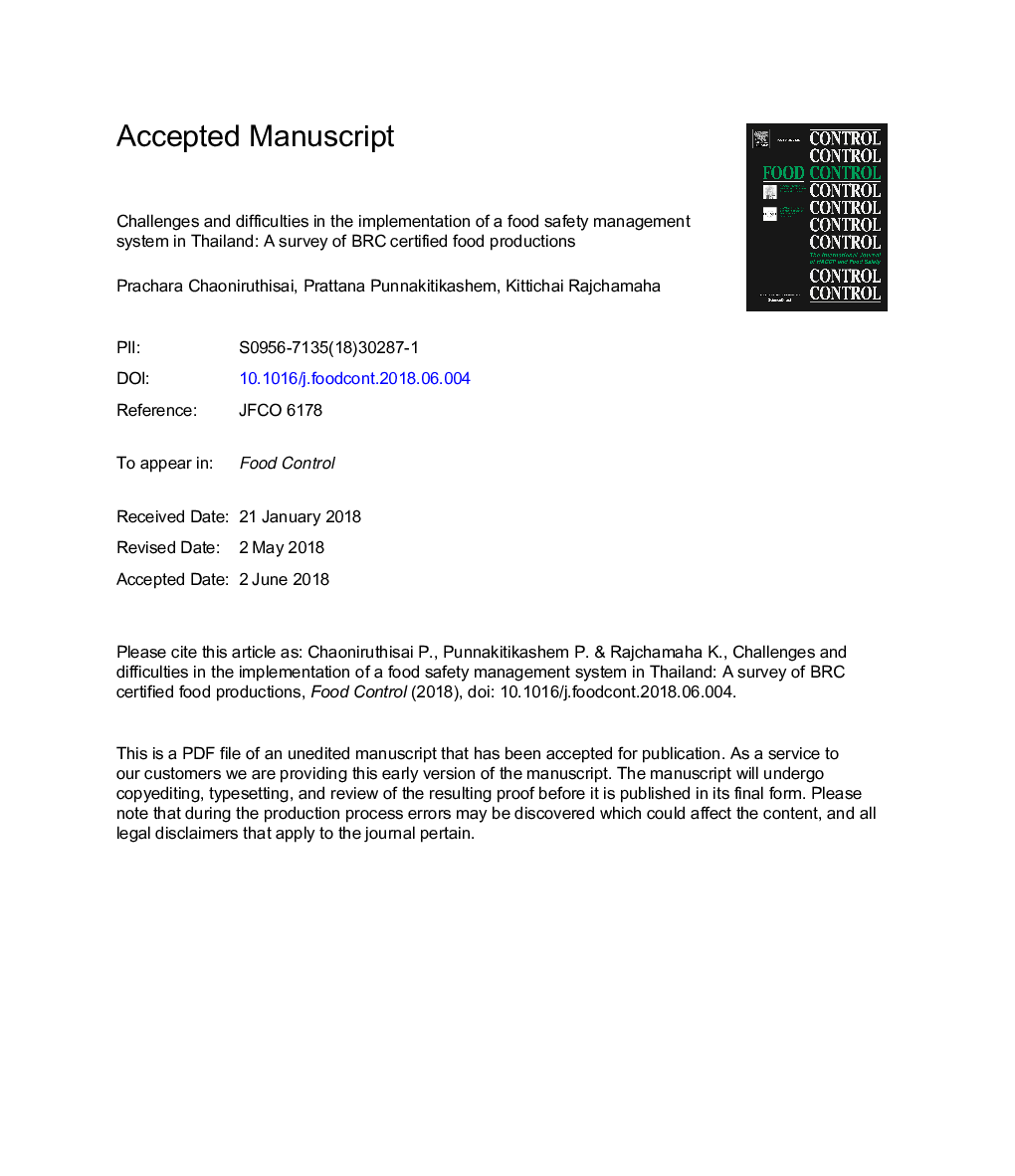| Article ID | Journal | Published Year | Pages | File Type |
|---|---|---|---|---|
| 8887771 | Food Control | 2018 | 31 Pages |
Abstract
There have been a series of contaminated food crises over the world in recent decades. FSMSs have been used by food producers to ensure food safety. However, there are various challenges and difficulties that exist which impede the effective implementation of FSMS. This paper aims to 1) identify and prioritize those challenges and difficulties in an effort to more effectively implement FSMS by Thai BRC certified production, 2) indicate the contextual factors of food organization (i.e. firm size and QA systems) and investigate their impact on the effectiveness of BRC implementation, and 3) examine whether the Food Safety Team (FST) number could moderate the association between firm size and effectiveness. To achieve the objectives and answer the questions, a quantitative methodology approach was used to develop a survey to gather data from 217 food safety and quality managers throughout the country. Descriptive and inferential statistics were used to analyze the data. The results showed that sampling was dominated by larger-sized firms (67.1%), meaning firms employed in excess of 200 people. By exploratory factor analysis, four difficulty constructs were extracted and named in descending order of mean value as organizational and staff capacity, finance and budgeting, human characteristics, and system requirements. The study of contextual factors showed a significant outcome in firms with BRC-certified production together with the complement of ISO 9001 and HACCP systems, i.e., these firms were considered to be more effective. However, there was no significant effect due to interaction by FST number on the relationship of firm size and effectiveness.
Related Topics
Life Sciences
Agricultural and Biological Sciences
Food Science
Authors
Prachara Chaoniruthisai, Prattana Punnakitikashem, Kittichai Rajchamaha,
